Check out some books by your tutor Fiona Veitch Smith … (click on the book covers to find out more)
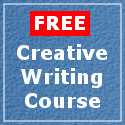 Hello everyone, welcome to the first session of our free online creative writing course. Over the next eight sessions we will be looking at different aspects of creative writing and trying our hand at various forms. I’d strongly encourage you to have a go at the exercises along the way, and please feel free to leave comments or ask questions at the end. If you have arrived on this page without first reading the home page and frequently asked questions page (on tab above) please go back and do so now. If you have read them, enjoy the course!
Hello everyone, welcome to the first session of our free online creative writing course. Over the next eight sessions we will be looking at different aspects of creative writing and trying our hand at various forms. I’d strongly encourage you to have a go at the exercises along the way, and please feel free to leave comments or ask questions at the end. If you have arrived on this page without first reading the home page and frequently asked questions page (on tab above) please go back and do so now. If you have read them, enjoy the course!
Creativity and Art
What is creativity? The Collins dictionary defines it as ‘the ability to cause something to exist’. Without getting into too much of an existential discussion, I would say that with every thought that is expressed, something has been created. It was Descartes who said: ‘I think, therefore I am’; well I would add, ‘I think, therefore I create’ (do you feel a God complex coming on?). But how do we express our thoughts? Sometimes we do it verbally, other times by body language and still again through what is loosely termed ‘art’.
Art takes place when a thought is expressed and fixed in a way that other people may experience it on an aesthetic level – through music, writing, painting, sculpture, choreography and so on. Many artists say that their best work takes place when they ‘by-pass’ the thought and simply express the feeling. This may be true, but for writers, who use a verbal medium, a feeling must first be converted into a thought before it can be put into words. Don’t over analyse the thought before you express it, as this way you can ‘channel’ the purest interpretation of the feeling, but some cognitive process needs to take place. Some writers prefer to mull over a thought and give it form before they put pen to paper – I’m one of them – but it’s good practice to try and switch off the ‘editor’ at least for the first draft. First response trigger exercises are useful in this regard and can release some unexpected words and images.
Exercise 1:
Write down your first response to these words or phrases:
- Blue ball
- And that’s when the sadness came
- Coffee
The first task of a good writer is to convert feelings into thoughts and then into words. This is the raw material that can then be converted into something more permanent. Some writers refuse to toy with their first drafts, believing their creativity will be diluted; I disagree. Allowing your critical mind to improve a piece of writing is where the craftsman meets the artist. Something produced only by the former will lack soul and something by the latter will lack form. Good writing is a combination of art and craft.
For public consumption
Art, of course, is highly subjective and one woman’s masterpiece is another woman’s unmade bed. We all have the ability to create, but whether or not our creation is ‘art’ must be left to the eye or ear of the beholder.
In this session we will look at how you can craft those creative thoughts into creative writing to share with other people. And that’s what sets ‘public’ writing apart from ‘private’ scribblings – there’s a perceived readership in mind. When I ramble on in my journal, I am the only one who will read it (hopefully!) so my only concern is getting my thoughts down on paper. The moment I want someone else to read it I begin to consider ways to improve the presentation and craft it into something more aesthetically pleasing. I consider which words may sound more colourful, whether or not my sentence structure is grammatically correct, whether I’m using evocative imagery, and so on.
Story, feeling or image?
What is it about those creative thoughts that you think might be of interest to other people? Do they speak of an eternal truth or a common experience? Do they make you laugh or cry? Do they suggest a story that will entertain or a poem that captures a moment that must be shared?
Exercise 2: In 50 words or less write down why you want to write then list three creative thoughts that you’ve had lately (each 10 words or less). These may be an image, a musing, a ‘truth’, a story, or so on. If you haven’t had any, take yourself for a walk and look around; what grabs your imagination? Browse through a newspaper or a magazine; do any stories or pictures catch your attention? Think back over your day; did anything funny, charming, shocking or unusual happen to you or someone you know?
Poetry or prose?
Some people are more suited to writing poetry than prose and some people do well at both. Although we won’t be discussing it in this course, other people are more suited to script. I’m one of them. I’ve had relative success as a prose writer and in fact have managed to earn a living from it, but it’s taken years of hard work to get to this point. I recently branched out into scriptwriting and found that I had much more of a natural ability. (If you’re interested in finding out more about scriptwriting, check out getting started in playwrighting). You may find that you’ve been trying to make it as a poet when actually you’re more suited to prose. Now I don’t want to pigeonhole anyone, but ask yourself the following questions:
- Are you more attracted to films than stills?
- Do you enjoy telling people ‘stories’ from your life?
- Do you prefer to read stories or poems?
If yes, to these, then you may be more suited to prose than poetry. If no, then the opposite may be true. If it’s ‘sometimes yes, sometimes no’ then perhaps you are suited to both. We shall be looking at how to write poems in more detail in session 7, but suffice to say, a poem is like a snapshot of a moment. If you can’t rest until you know what happened before and after, then prose may be your genre.
Exercise 3: Take one of the three creative thoughts you wrote down in Exercise 2, then list 20 separate words that communicate or describe that thought. Do not, at this stage, link the words into sentences. Once you have your 20 words use them in a poem of 16 lines or less. Then, take the same 20 words and work them into a short story of under 300 words. Which exercise came more easily? Which form has best communicated your creative thought?
Further Resources:
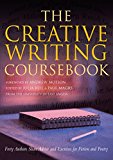
There are some excellent resources out there for creative writers. To get quick ‘starter’ images when your own well is dry I recommend The Writer’s Block by Jason Rekulak. I’m currently working through The Creative Writing Coursebook by Julia Bell and Paul Magrs and finding it very useful.
The next creative writing course session is how to write a short story. But before you move on to that, please feel free to leave a comment or ask a question in the box below.
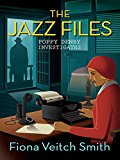
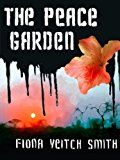
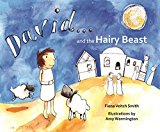
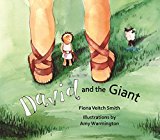
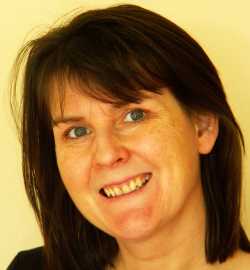 Welcome to The Crafty Writer's free online creative writing course, presented by Fiona Veitch Smith, a freelance journalist, editor, author, playwright, screenwriter and writing teacher. I hope that you'll see a dramatic improvement in the quality of your writing as you work through this course.
Welcome to The Crafty Writer's free online creative writing course, presented by Fiona Veitch Smith, a freelance journalist, editor, author, playwright, screenwriter and writing teacher. I hope that you'll see a dramatic improvement in the quality of your writing as you work through this course.
Very nice excersise. I could not imagine that I could write more then five sentences on any topic, but after readuing the first part am sure that i have some hidden talent.
Thanks
And perhaps not so hidden anymore, Ron.
This is really helpful information. My forte is prose.
You’re welcome, Okey.
I have been trying to get some thoughts down on paper for a while now but for some reason, have not. I saw this website and in less than an hour have written 3 full pages. I plan to continue with this course. Thanks!
Mission accomplished! Well done, Lisa
I did better on my first lesson than I expected to. Thank you very much for making this course available.
I like these exercises. They were somewhat challenging. I liked it.
The hardest part is getting started, and you’ll give the nudge I need,especially from an author/teacher whose been in the trenches.
Sheila the procrastinator
I’m still in the trenches Sheila! Now get off your rear end and into action
I think this exercises are going to be very helpful and useful for me. I like to write stories, perhaps I don’t mine writing a script neither. I just want to get into it and really get good at it. I want to thank you for having this free lessons to help me get started on the right track and learning more about writing.
I am wanting to get back into writing. I also want to write a short story to start with. But I do need a lot of help getting me started. and what I have seen looks like exactly what I need
I went ahead and wrote notes as I read this session, keeping track of the exercises that were included and completing them as I went on. I found that I’m indeed no poet and I much prefer prose. I’ve also discovered that while I may think that my writing is good from the get go, I have a lot of work to do and, therefore, need to write more than one draft. Implementing this, however, will be more difficult.
i write made up stories/poems and have done for many yrs BUT, i know there’s more to just writing long/short stories and i so want to better my writing, i am not really sure what i am to do but i want to want to learn more about creative writing
dorothy
THIS HELPED ALOT!
Hmmm interesting, thx for the recommendations/resource’s
Hi Fiona, Thank You so much. I have just started with the exercises and it already feels so stimulating. I now try to apply this in my daily routine and find it easier to put my thoughts down on paper. Thank you…
Glad it’s working for you, Neeth.
write is my whole life.
i liked ur exercises but how to get marks on it, there is no evaluation module of our writing
No there isn’t. It’s not that type of course. Consider this like a text book that you read and then do exercises. This is a free course and I can’t give unpaid feedback.
I’ve just embarked on this free online creative writing course! so far so good!
Glad to hear!
Thanks for providing this opportunity for emerging writers to learn and be able to take their writing to the next level.
I am very pleased to have found this website and will be completing this course expecting to enhance my knowledge and skill in writing. I currently write short stories, and lately I’ve been exploring flash fiction. I believe this course will give me the foundation I need to write stories that become published.
Michelle Allen
You’re welcome, Michelle.
Thanks Fiona for creating this guide. I do not have the time to enroll in a class to learn creative writing. But after going through the first lesson and doing the exercises I feel very much satisfied. I have created a few paragraphs of my own work at last. I wanted to do this for so long. I shall complete the whole course and hope I shall become a better writer along the way.
Lovely to hear Deb.
These exercises were provocative and useful for making the thoughts focus….they were challenging but the end result was both a revelation and rewarding. I’m not sure how you do it (maybe you were a psychoanalyst in another life…lol) but you have a knack of getting words out of my head in an order that I don’t even recognise as my own work…freaky but I love it!
I send little nanobots into the brains of all my students, Sinead. Obviously
I know I have not completely lost my “muchness” …
Bread crumbs may lead me back, perhaps a yellow Brick or two, in a week’s walk,
more or less—
Could you point me to the stars, please?